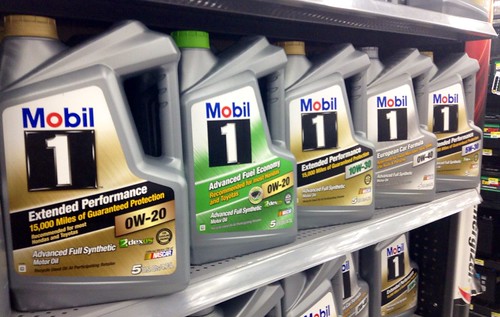9 minutes estimated reading time
UK Economic Hole
Will anything revive UK productivity? | Financial Times – I am not convinced that anything currently on the horizon will sort out the UK economic hole.
Verdoorn’s Law and Nicholas Kaldor
If we go back to 1949 Dutch economics Petrus Johannes Verdoorn came up with a law – the long run productivity generally grows proportionally to the square root of output. This law addresses the relationship between the growth of output and the growth of productivity. Faster growth in output increases productivity due to increased returns.
“in the long run a change in the volume of production, say about 10 per cent, tends to be associated with an average increase in labor productivity of 4.5 per cent.”
Causes of the Slow Growth in the United Kingdom Nicholas Kaldor (1966) Cambridge University Press
A heuristic called Vandoorn’s coefficient of 0.484 was found in estimates of the law following Vandoorn’s original publication. Nicholas Kaldor who made similar points as far back as 1960 in his work Essays on Value and Distribution. Kaldor built on Verdoorn’s Law observing that manufacturing was the best way of increasing output.
Slater, Walker Securities
The UK economic hole isn’t anything new. Back when I was a child we saw UK industry disappearing at about 1.5% of industrial capacity a month. The source of the destruction was apparent in the post war period, although manufacturing innovation had been underbanked and under invested for decades. Jim Slater and his financial vehicle Slater, Walker Securities was the harbinger of forces that unleashed the UK economic hole.
The State We’re In
Economics editor Will Hutton wrote the The State We’re In and I got to read it while I was in college. It caught the policy wonk zeitgeist of the future Blair administration – making the argument for long termism and manufacturing as a creator of wealth together with Keynesian economics.
Slow Growth Britain to Cool Britannia
Hutton wasn’t alone in his viewpoint but building on the expertise and experience. Wilfred Beckerman in his book Slow Growth in Britain: Causes & Consequences published in 1979 is a case in point. As you read these books the same points are made over and over again about what has become the UK economic hole. The discovery and exploitation of North Sea oil provided a sticking plaster from 1982 through to 1999. But production in UK oil and gas fields have been in decline since. Any economic productivity benefit provided to British industry through a massive shake out was transferred to unemployment relief. Secondly industrial eco-systems or ‘clusters’ as Richard Florida would term them in his work Who’s Your City? disappeared, causing the manufacturing base to lose critical mass. Any gains were largely spent by 1990. Manufacturing was a driver and a shock absorber for productivity related issues – this is important for the subsequent UK economic hole.
While Hutton was read by the future Blair administration they did little about it, due to the Augean task that confronted them.
Following the decline of manufacturing the UK, focused on financial services which turned toxic in 2006. There were additional smaller bets on professional services and the creative industry (remember pre-millennium awkwardness of Cool Britannia)? As an economic rational decision maker, I pivoted my career out of industry and into the creative sector – thankfully I was young enough to be able to do it. Many couldn’t and were trapped in low value services jobs or living on long term sickness benefits to massage unemployment figures.
Young tax-paying workers
The collapse of financial services saw the current productivity collapse and stagnation amplifying the long standing UK economic hole. Brexit could be seen as a wail of pain and anger. The reality was that being in the EU allowed cheaper skilled workers to move to the UK and use existing manufacturing plants for the likes of Cadbury’s and Unilever. So the UK benefited from young tax-paying Europeans, but lost out in terms of wage depression. Brexit severed that last gasp of productivity increases.
Business
Adidas: declining market share in China reflects growing strength of local brands | Financial Times – Xinjiang and also Adidas real world retail got hammered through COVID-19. Finally Chinese consumers want local brands over Adidas due to an increased sense of national pride
China
Canada considers expelling Chinese diplomats for targeting MP – BBC News and also worth reading in conjunction with Australia rethinks ‘quiet diplomacy’ tactic as Cheng Lei marks 1,000 days in Chinese detention | Australian foreign policy | The Guardian – Australia is rethinking how to help citizens embroiled in “hostage diplomacy” as it marks the 1,000th day of the journalist Cheng Lei’s detention in China. – good luck with that, it doesn’t take into account the securitisation of thinking in every aspect of China’s policies
China raids multiple offices of international consultancy Capvision | Financial Times – this follows on from raids on Mintz Group and Bain & Company. Capvision is kind of like GLG win that it connects international investors and management consultants with experts
Economics
For China’s ‘young refuseniks,’ finding love comes at too high a price — Radio Free Asia – Young people are avoiding marriage, having children and buying a home amid tanking economy, concerns about future. To be fair you can also see this in the west. The key difference is that this flies in the face of where the Communist Party wants them to behave
Energy
What is really driving ExxonMobil’s clean energy commitments? | Financial Times – the decades long algae biofuels programme failed. Back when I worked in the oil industry at the start of my work life, ExxonMobil had the best research and development / innovation team in the oil industry. They were way ahead of the likes of Shell or BP. The heuristic within the industry went something along the lines of: BP could find oil anywhere, Occidental could get a contract to drill anywhere, Shell could market any product successfully and ExxonMobil could out-innovate the rest of them.
For instance Mobil were decades ahead of everyone else with their Mobil 1 synthetic lubricating oil back in 1974. Castrol was processing petroleum oil and calling it synthetic, they were eventually caught out in 1998 – with Mobil winning a moral victory if not a court case. The point is that if ExxonMobil can’t get algae to work, I doubt any company can – energy desperately needs its semiconductor moment.
Talking about a semiconductor moment, one of the places where this would be really welcome would be green hydrogen. I had hoped that Ireland would be able to convert its wind power bounty into generating hydrogen by electrolysis as a way of moving and storing energy in a way that electrical batteries can’t match.
FMCG
Nivea’s premiumisation strategy in China yielding success in face and body categories | Cosmetics Design – you can see an example of this in Nivea Cellular body wash – which shows a mix of product development and packaging innovation to create a premium offering.
Health
Only the Global-Health Emergency Has Ended – The Atlantic – “This virus is here to stay. It is still killing, and it’s still changing,” Tedros Adhanom Ghebreyesus, the director general of the WHO – the cadence of an emergency might be finished but there is still subtantial health risk. It has declined to ‘only’ the fourth most common cause of death…
After weight loss, Alzheimer’s may be next frontier for drugs like Ozempic | Reuters – there are medical trials already underway
Klick Wire | HCPs prefer emails and ChatGPT is 10x more empathetic
Singapore based emergency nurses critique media and societal stereotypes and tropes.
Ideas
Why the U.S. should fight Cold War 2 – by Noah Smith
Japan
Japan’s ‘myth of security’ raises cyber attack risk | Financial Times
Luxury
Genesis G80 Electrified vs. BMW i4 M50 | MACAU DAILY TIMES 澳門每日時報 – the G80 is closer to a 7 series than the i4 which is somewhere between the 3 and the 5 series. Overall I would prefer to go with a Genesis given the reliability issues that BMWs have had for the past two decades.
Materials
Media
Meta Has Lost The Pulse Of Its Customer Base As Automation Replaces Human Services | AdExchanger
What happens when quants go ‘Mad Men’ | Financial Times
Online
No smoke without fire for ByteDance’s US struggles
Philippines
More than 1,000 rescued in Pampanga ‘scam call center’ | ABS-CBN News – the Philippines have been doing their part in trying to combat transnational fraud
Security
TikTok spied on me. Why? | Financial Times
Software
Volkswagen plans jobs shake-up at struggling software arm | Financial Times – it sounds like Symbian for cars, complete with the same organisational and project dysfunction. Read with Volkswagen’s troubled software division is getting new leadership. Again. | Ars Technica
Raycast – AI framework app for Mac users recommended by my friend Anthony Mayfield
Telecoms
The Disconnect on Undersea Cable Security – Lawfare – The fibre-optic submarine cable sector is a vital, but ignored, part of the world’s critical infrastructure. Many members of Congress and the U.S. government, see the risks to subsea cables quite differently than cable owners and manufacturers. Brookings Institute’s Joseph Keller examines this disconnect, suggesting ways that the policy community can protect and advance this critical industry.
Thailand
Thailand legalised cannabis and an industry boom occurred. A key part is trying to integrate and provide value to the country’s hospitality, tourism and travel sectors.
Web of no web
Qualcomm continues to strengthen its automotive offering – Qualcomm acquiring auto-chip maker Autotalks in $350-400 million deal | Ctech
Fourth Industrial Revolution slow to start in America – Asia Times
Wireless
India smartphone shipment declined 16% in 1Q23, Xiaomi saw more than 40% fall | DigiTimes – Vivo seems to be the preferred brand over Xiaomi


